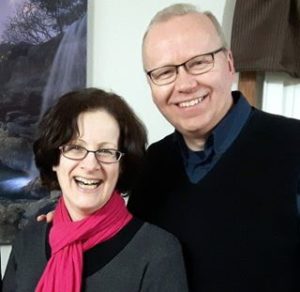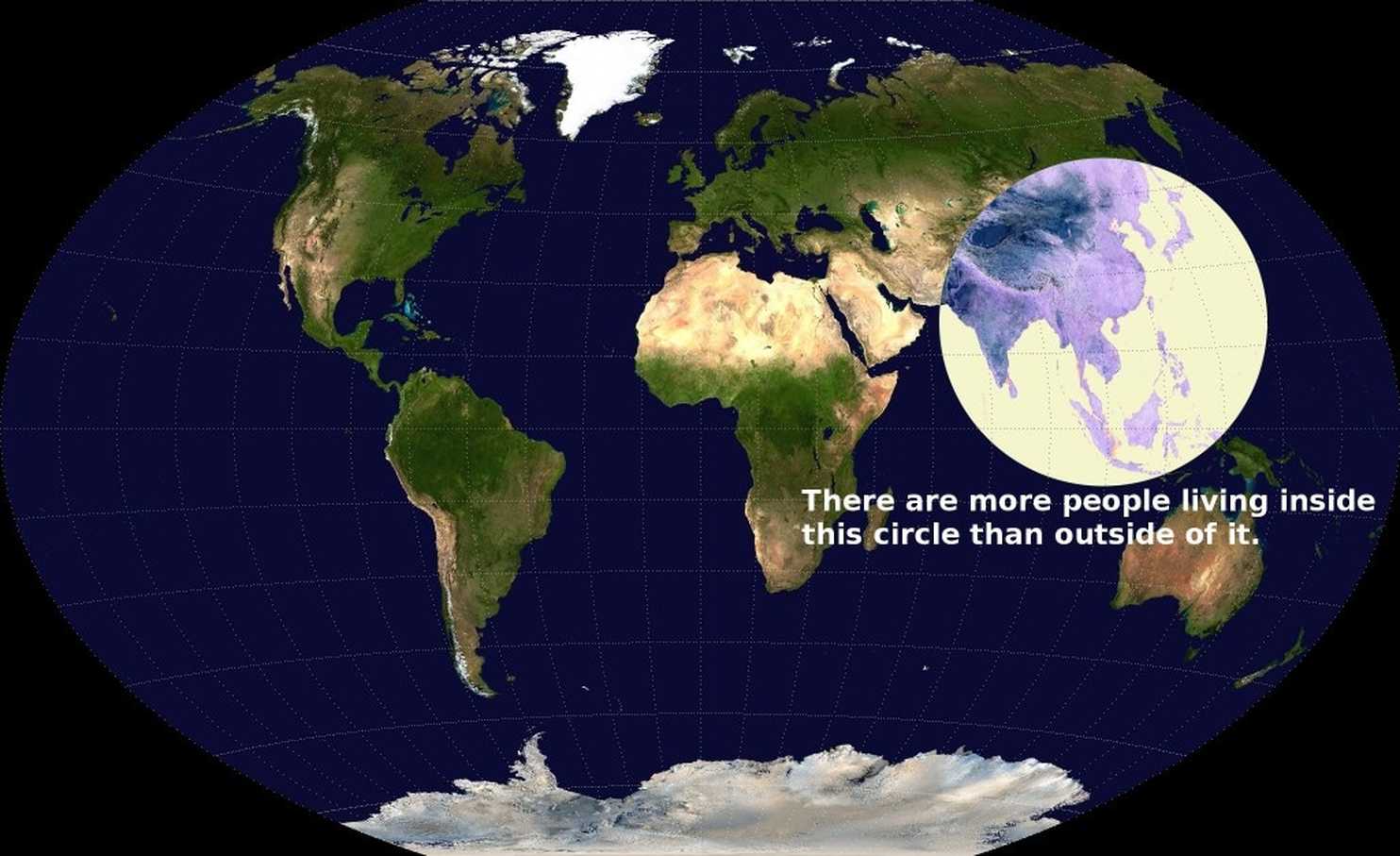
An Outline of the Discussion
- Mark got his start in missions by becoming a full-time missionary in Odessa, Ukraine. He was there for over ten years, planting multiple churches, starting English schools, and trained Eastern European missionaries to send out throughout the world.
- The church in Ukraine is maturing and growing, and beginning to send out missionaries themselves.
- About a year ago, Mark and his wife returned home to the United States to begin work with Entrust, an agency that sends missionaries out worldwide.
- Entrust is nearly 40 years old, and started out under the name BEE-International (Biblical Education by Extensions International) They worked behind the Iron Curtain in Eastern Europe, developing underground Bible schools as well as translating and smuggling Bibles.
- When the Iron Curtain fell, they expanded into Africa, Asia, and the Middle East. They now work in 22 different countries, and train leaders in at least 70 countries.
- Entrust seeks to train leaders, which in turn train more leaders.
- The logo has entrust4, or Entrust to the 4th Power, and comes from 2 Timothy 2:2. Four generations of evangelists are mentioned: Paul, Timothy, Reliable people entrusted by Timothy, and the others that they (the third group) train. This is Entrust’s goal; training to four generations.
- Eastern Europe, where Entrust began, is now friendly to the Gospel. Most of the countries they were in back then now embrace freedom of religion. Most of the countries they expanded into are considered “restricted access” countries. Mark works a lot in the Middle East and Asia. (He can’t be specific in most cases.)
- When they can’t work openly in one country, sometimes they can train leaders in a neighboring country that is more open.
- They take advantage of various refugee crises. While Christians are living in refugee camps, often with expenses paid for by the United Nations, they can get as much as two years of Bible college training. Often Christians are discriminated against, and sent back “home” while Muslims are given coveted access to Western countries. The Christians sent back to their home countries are thus trained to teach the Bible and plant churches in countries where foreigners would be prohibited (legally and practically) from doing so.
- The term “closed countries” used to be common, but has been recently changed to “restricted countries.” The reason is that no country is closed to the Gospel. Restricted is a better term because it might be difficult to get the Gospel there, but it is getting there. This includes North Korea, the most difficult country to get the Gospel into.
- I (Andy) recently watched a documentary called “The Jangmadang Generation” about the North Korean Millennials that are developing their own “off the grid” markets in order to sustain themselves in a country that is broke and has no real economy to speak of.
- Mark has heard of Bibles being smuggled into restricted countries by any means possible, including attaching them to balloons and setting them loose hoping someone will find and read them.
- The depth of the theology that leaders are trained in can vary depending on location and situation. This can be a challenge to Mark, who is more Conservative (semi-Reformed, Monergistic, etc.) Some churches can be more Charismatic, but are at least teaching the Gospel. Though he might have theological disagreements, he sees God clearly working in those places.
He has been pleasantly surprised by the depth of the Gospel that some of their trainees are teaching, despite differences on secondary doctrinal issues. - On the missions field, theological resources can be hard to come by. Not only do they often have no theology library to speak of, sometimes they don’t even have a complete Bible.
- As Americans (Mark & I), we can take for granted that there are many great churches around us to choose from. In Colorado Springs, Mark guessed there were 100 churches he could feel relatively comfortable in. Contrast that with Odessa when he was there, which may have had hundreds of churches, but only three that he would have been comfortable with (strong on the Gospel.)
- There’s a “theological famine” going on around the world. It’s estimated that 75% of the pastors around the world have no theological education (some think the number is higher.)
- Mark has worked in Africa the least in regards to the places Entrust operates.
- Mark comments that the church in Africa is plagued by Gospel missions in the past that were done with Westerners in mind, not Africans. It’s not so much the truths of the Gospel that needs to be contextualized, but rather the way it affects people’s lives. For example (using India, rather than Africa), a convert with a Hindu background can wonder which of their previous religion’s gods does Jesus replace? As westerners, we have a polytheistic background to understand such confusion.
- Africa has a lot of syncretism because Western theology doesn’t address many issues they face. In one example, someone in Africa had a sick child. He called the pastor and elders to come and pray for the child. One of the elders also brought the pastor a chicken, which the pastor took out under a tree to sacrifice to their old, animistic gods for healing. Almost a similar case to the book of Hebrews, but with African animists rather than Temple Jews.
- Entrust seeks to train local leaders to better equip them to address such local issues.
- HIV/Aids is a major issue in Africa, and time is spent in Seminary/Bible training on that issue.
- Moving on to Asia… there has been a lot of freedom in the countries missionaries are working in recently, but it’s changing.
- There’s a trend toward “religious nationalism.” One particular religion is promoted as a national identity.
- Myanmar was in the news recently with Muslims (a religious minority) fleeing because the government was pushing them out.
- Pastors are being jailed. Churches are being closed, and even torn down. All in the name of religious nationalism.
- Despite these developments, the Church continues to grow in these countries.
- It’s estimated that around 50,000 people are coming to Christ every day in Asia. This number is supposed to be only “Evangelical believers,” and doesn’t include pseudo-Christian groups like Mormonism.
- India has at least one Christian state, in the Northeast – Nagaland.
- It was the Prime Minister of India proclaimed that all Christians would be exterminated from his country by 2021.
- The people of Nagaland are very nervous.
- Something Mark wants more Christians who might (ever) engage in missions work to know: there are zealous Hindu groups in India that scour websites (such as Facebook) for Christians who might travel to India. They’ve had short-term missionaries travel to India on tourist visas that come under the watch of the Indian authorities. Missionaries have been told they are being watched, and that there are no posts on their social media sites indicating they’re visiting any popular tourist locations.
- Facebook is a popular site that these Hindus watch. They also archive Seminary and Bible College websites. A ten year old web posting expressing interest in doing missions work in India could well be held in a database there and used against Christians who travel to India.
- The Church in China has seen crackdowns lately. However, it typically results in the Church growing.
- The risk to American missionaries in many Asian countries is fairly minimal. If caught, most countries will simply kick you out. However, the nationals have a difficult time.
- The Church in Asia doesn’t want us to pray for the persecution to end. They say, “Don’t pray FOR us, pray WITH us.”
- In the Middle East, ISIS has created great opportunities for the Gospel. Millions of people have been displaced due to ISIS.
- Mark has spoken with many believers in the Middle East with Muslim backgrounds. He sees a common pattern that has been striking to him:
- They were displaced from their homes by ISIS, causing them to question why Allah would allow fellow Muslims to mistreat them. This causes them to seek Truth.
- Someone gives them a Bible. Sometimes the circumstances are miraculous; such as a stranger walking up in the market and handing them a Bible, maybe saying, “God told me to give this to you.” Some are more ordinary: they’re in a refugee camp and someone is handing out Bibles so they grab one.
- After reading their Bibles, they all have said they started having dreams or visions of Jesus (or a Jesus-like figure) calling to them.
- These stories are hard for Westerners to take seriously. I (Andy) have heard similar stories, but discounted them. Mark heard them first-hand from people who said that’s how they became Christians. He says of these stories “they’ll stretch your theology.”
- When pressing on to their subsequent stories, these new believers have expressed a joy in the Gospel that convinces Mark, though their testimonies are strange, their faith is real.
- The Middle East is based on an Honor-Shame culture. Westerners are used to a justice and equality culture. Converting to Christianity can be seen as a deep shame to their family members, which can be a death sentence.
- Mark doesn’t want people to miss the amazing opportunities going on right now for the Gospel. He laments that he missed the opportunities when the Iron Curtain fell in 1989. There are other, in some ways bigger opportunities going on right now.
- Mark sees opportunities in the Middle East in the wake if ISIS, in Asia (even with countries closing off to the Gospel), North Africa, and other places as well.
- The only place in the world where the Gospel is shrinking is Western Europe.
- 42% of the world has no church in their area to engage them with the Gospel. That’s 3.1 billion people.
Scriptures Referenced
- 2 Timothy 2:2
Additional Resources
- Entrust
- Joshua Project
- Open Doors World Watch List
- The Jangmadang Generation (North Korea) – Washington Post Documentary

